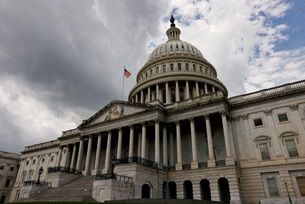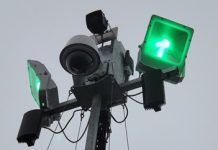The US Congress is preparing to extend the domestic surveillance authority that allows law enforcement to spy on Americans without a warrant by another four months, giving lawmakers more time to either reform or keep the disputed program.
The extension of the surveillance provision – known as Section 702 of the Foreign Intelligence Surveillance Act (FISA) – was tucked into the 2,353rd page of the more than 3,000-page National Defense Authorization Act, a must-pass piece of legislation lawmakers hope to send to President Joe Biden’s desk before the end of the year.
The delay follows more than a decade of debate over post-Sept. 11, 2001, surveillance powers that allow domestic law enforcement to scan the vast mountains of data gathered by U.S. foreign surveillance apparatus without warrants.
U.S. national security officials have been sounding increasingly apocalyptic warnings about what would happen should the authority be gutted or lapsed, with FBI Director Christopher Wray telling a Senate committee on Tuesday that losing Section 702 would be “devastating” to law enforcement’s ability to counter cyber and terrorism threats.
U.S. lawmakers have become increasingly skeptical of the government’s claims about domestic surveillance amid signs that officials have been exaggerating its utility. In a 2022 U.S. court ruling that found one of America’s most high-profile domestic surveillance programs illegal, judges noted that public claims made by national security officials about the spying “were inconsistent with the contents of the classified record.”
Senators and representatives have advanced various more or less sweeping proposals to reform the surveillance program, including potentially requiring warrants for queries against the data. In a letter to his colleagues, House Speaker Mike Johnson said he was scheduling time next week for representatives to weigh the various proposed changes and extensions to the authorities under FISA, including 702, with an eye toward “a final reform bill that can be passed in both chambers.”








